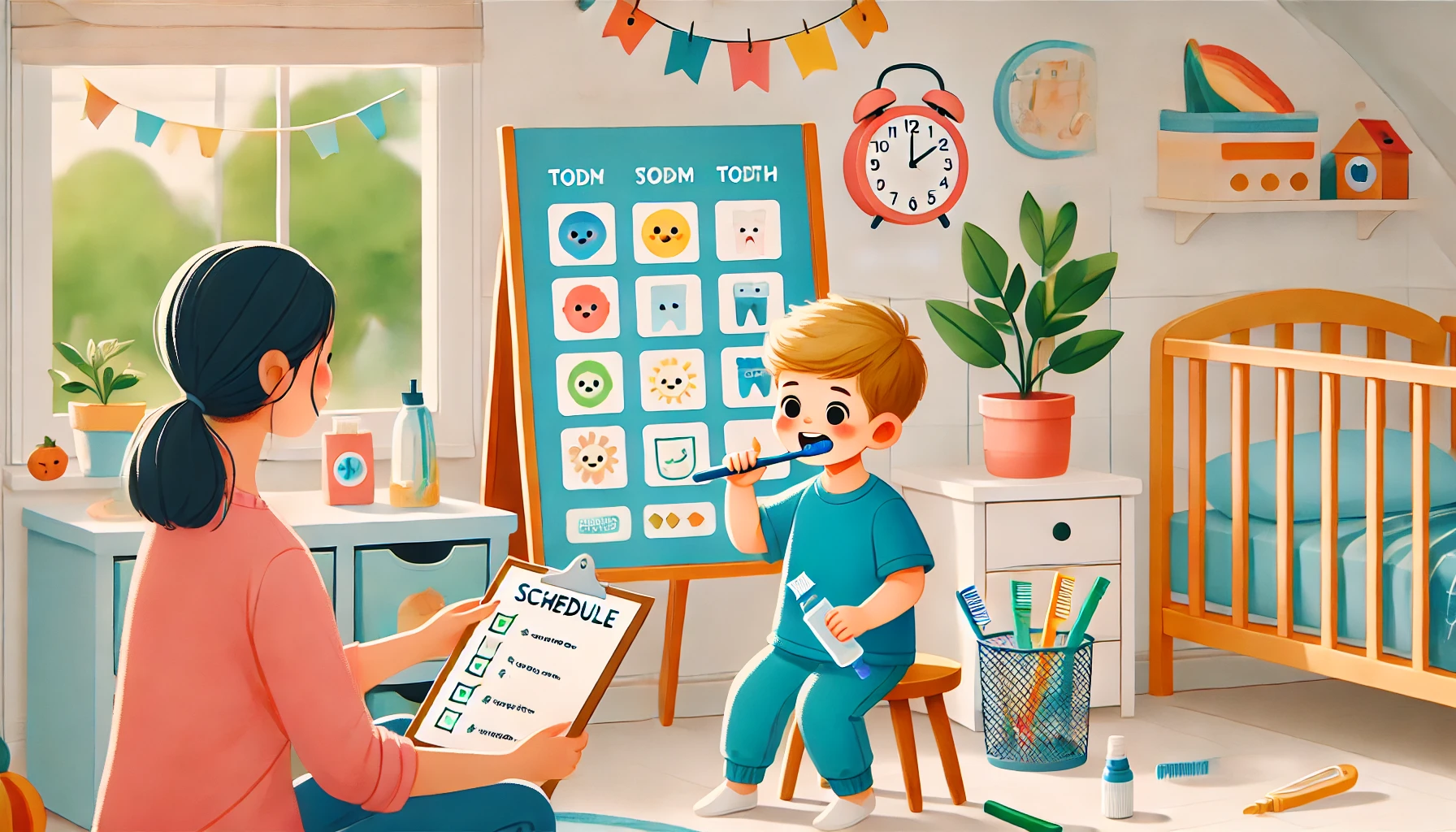How to Teach Young Children About Managing Time and Daily Routines
Helping young children learn to manage time and follow daily routines gives them structure, independence, and a sense of security. Establishing consistent routines allows kids to better understand the flow of the day, build healthy habits, and take ownership of their responsibilities. With gentle guidance and engaging tools, parents can teach time awareness and routine in fun, meaningful ways.
Why Routines and Time Management Matter
- Reduces stress and uncertainty – Children feel more secure when they know what to expect.
- Promotes responsibility – Encourages children to manage simple tasks on their own.
- Builds self-discipline – Develops consistency in behavior and learning.
- Improves transitions – Helps kids shift between activities with ease.
- Prepares for school and life skills – Encourages punctuality and planning.
1. Explain Time Concepts in Simple Language
Young children don’t understand hours and minutes yet—start with relatable ideas.
Activity Idea:
- Use terms like “before lunch,” “after playtime,” or “in the morning.”
- Show a clock and say: “When the big hand is on the 12, it’s time to eat.”
- Create picture cards to represent parts of the day.
What Kids Learn:
- That time has order and structure.
- How to connect events to parts of the day.
- That time helps organize what we do.
2. Create a Visual Daily Schedule
Visual aids make time and routines concrete and engaging.
Activity Idea:
- Make a chart with pictures for morning, afternoon, and bedtime tasks.
- Include activities like brushing teeth, eating meals, playing, reading, and sleeping.
- Let children move cards or place checkmarks after each activity is done.
What Kids Learn:
- How to follow a sequence of tasks.
- The satisfaction of completing parts of the day.
- That routines are predictable and safe.
3. Practice Timed Activities
Use timers and countdowns to help kids understand time passing.
Activity Idea:
- Use a sand timer or visual countdown for brushing teeth, cleaning up, or transitions.
- Say: “You have 5 minutes of playtime before dinner!”
- Count down the last 10 seconds together to build awareness.
What Kids Learn:
- How time limits feel and look.
- That some tasks have set time frames.
- How to focus on finishing within a time window.
4. Make Routines Fun and Interactive
Adding playfulness keeps children engaged and cooperative.
Activity Idea:
- Turn tasks into songs: “This is the way we wash our face…”
- Race against the clock to beat a timer in the morning.
- Use stickers or stars to reward completed routines.
What Kids Learn:
- That routines can be enjoyable.
- How to take ownership of tasks.
- That small wins add up to confidence.
5. Involve Kids in Planning Their Day
Giving kids a role in managing their time increases motivation and responsibility.
Activity Idea:
- Ask: “Do you want to play before or after snack?”
- Let them help place cards on the schedule board.
- Encourage goal-setting: “Today I will get dressed by myself!”
What Kids Learn:
- That their choices influence the day.
- How to think ahead and organize tasks.
- The value of independence and self-direction.
6. Model Healthy Time Habits
Children learn most by watching how adults handle their own time.
Activity Idea:
- Say: “I’m finishing this now so we’re on time for the park.”
- Talk through your schedule out loud.
- Show how you use tools like calendars, alarms, and lists.
What Kids Learn:
- That managing time is important for everyone.
- How adults plan and stay on track.
- That routines are lifelong skills, not just rules.
7. Be Consistent With Routines
Repetition builds habit—and habits build success.
Activity Idea:
- Keep wake-up, meal, nap, and bedtime routines as consistent as possible.
- Stick to the same order of tasks each day (e.g., snack → story → nap).
- Gently remind and guide when your child forgets.
What Kids Learn:
- That predictability helps them feel in control.
- How habits form over time.
- That consistency leads to mastery.
8. Celebrate Routine Successes
Positive feedback builds motivation and confidence.
Activity Idea:
- Say: “You got ready all by yourself this morning! That’s awesome.”
- Use a chart to show progress and milestones.
- Plan a fun weekend activity when routines go well all week.
What Kids Learn:
- That effort and responsibility are recognized.
- The joy of accomplishing tasks independently.
- The motivation to stick with routines.
Final Thoughts
Teaching young children about managing time and daily routines helps them feel safe, confident, and in control of their day. With visual tools, consistency, and positive reinforcement, parents can help kids develop habits that support focus, independence, and lifelong success.
